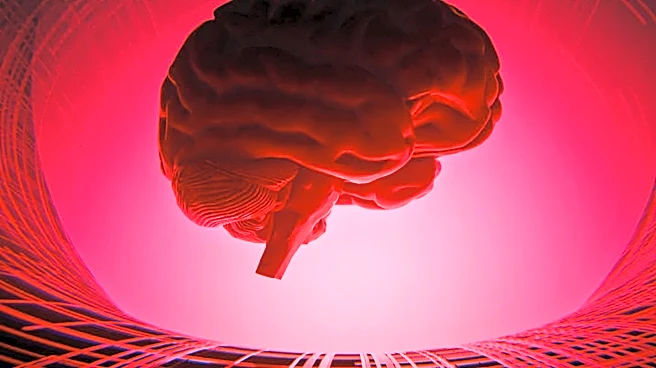What's Happening?
A study conducted by neuroscientists at the University of California, Santa Barbara, has found that the menstrual cycle causes physical changes in women's brain structure. Using MRI scans, researchers observed fluctuations in white and gray matter as hormones like estrogen and progesterone rise and fall. These changes suggest that the menstrual cycle is not only a reproductive event but also a brain event, affecting cognitive functions and emotional states.
Why It's Important?
Understanding the impact of the menstrual cycle on brain structure can lead to more personalized healthcare approaches for women. It may explain why certain neurological or emotional conditions fluctuate with hormonal changes, offering insights into conditions like migraines and mood disorders. This research challenges the historical focus on male brain studies and highlights the importance of considering female hormonal cycles in scientific research.
What's Next?
Further research may explore how these brain changes influence mental performance and emotional well-being, potentially leading to new treatments that align with hormonal rhythms. Healthcare providers might incorporate these findings into practice, offering more tailored advice and interventions for women experiencing cycle-related challenges.
Beyond the Headlines
The study emphasizes the dynamic nature of the brain and its ability to adapt to physiological changes. It encourages a broader understanding of women's health, advocating for empathy and recognition of the resilience inherent in these natural cycles. This could shift societal attitudes towards menstruation, promoting a more informed and supportive approach.










